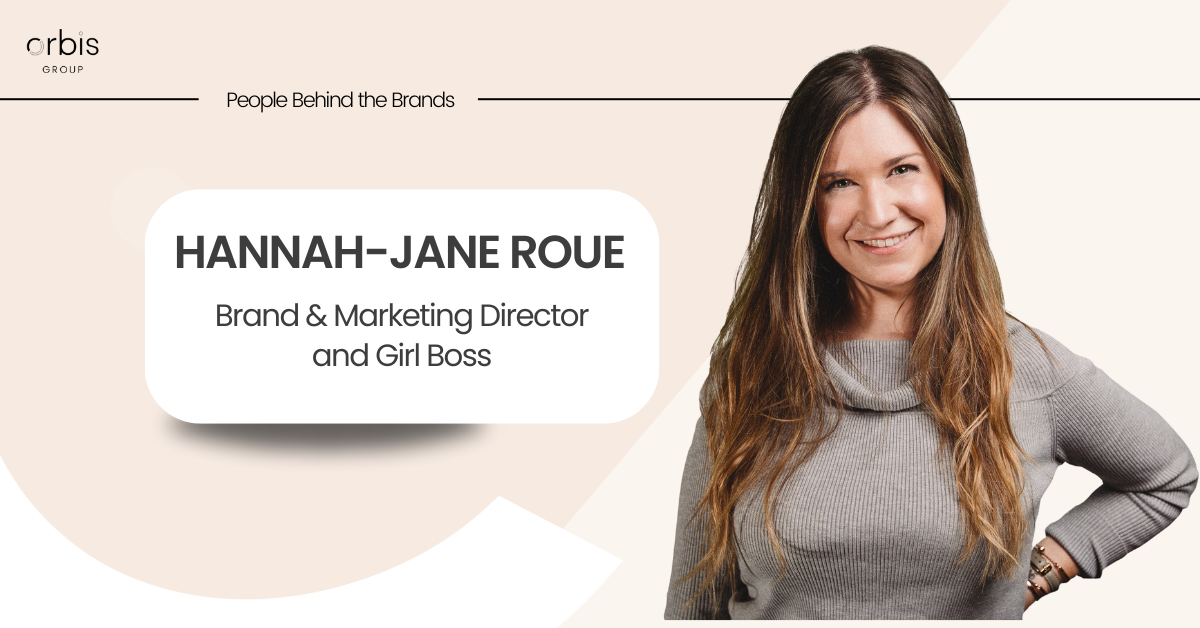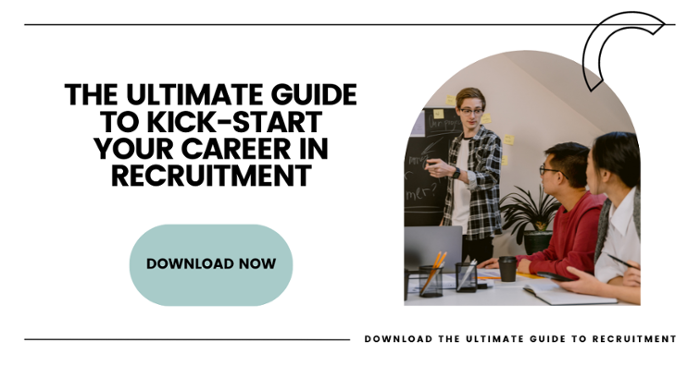
We're excited to reintroduce our People Behind the Brand series, aiming to spotlight the incredible individuals who work across our network of Orbis Group Brands.
In today's People behind the Brands, the series where you get to know our teammates, we sat down with Hannah-Jane Roue, Brand & Marketing Director.
We chatted about all things recruitment marketing, being a woman in leadership, the importance of looking after your mental health and being an Orbis OG!
Let’s jump in.
Hi Hannah! We are excited to finally sit down with you and learn about all things marketing and more about you.
You have recently been promoted to Director (Congratulations!) after working your way up the marketing ladder. Tell us about this journey to where you are now.
Thank you so much!
I started in an operational role, and when I first started in the recruitment industry, I was hands-on and assisted with the recruitment process. This gave me a super holistic view of business and recruitment. I specialised in creative subjects at school, so injecting those skills into my role was a doddle! Combining this into a recruitment marketing role was organic.
The biggest career transition for me was evolving into a leadership position. The weight of responsibility and accountability at this level is heavy! Self-confidence is key, learning how to make quicker decisions and understanding how to ‘read the room’.
Working within a position that is often discredited or demonised by other departments (sales) is challenging and it keeps me on my toes!
There will be “mic drop” moments where you lead a board into a new initiative, and they will be quickly followed by humbling experiences, where you really need to sit down, shut up and listen.
Recruitment marketing is still radical to a lot of agencies. It’s been a journey!
What are some of the biggest challenges you have faced as a woman in leadership?
I’m lucky to be part of a generation that is hopefully creating change. I’m also lucky to be following in the footsteps of trailblazers before my time who had to work A LOT harder than us today to get a seat at the table. (Men and women!) I feel very privileged for that.
We’re often unable to speak up, but it’s crucial. Not just at work, but at home too.
Enabling women in the workplace is a cultural shift that needs to happen in the office, sure, and I’m grateful for the leaders I work with to ensure that Orbis Group is inclusive and that we’ve eradicated gender bias, supporting diversity amongst the team and with our clients too.
This needs to be extended outside of work - at home and within our relationships.
We are all human, so it’s only fair to support a woman’s job as well as a man’s.
Whether that’s to do with societal expectations and bias, like motherhood and childcare responsibilities, or simply because women have to work 100 times harder to achieve promotions and pay packets that are equal to their male counterparts.
It’s often assumed that in heterosexual households, the man is the breadwinner and the woman takes care of the home and childcare, but there is nothing more liberating than to see men AND women bringing home the bacon, balancing childcare between them as equals and supporting one another's careers.
Huge shout out to my partner, who, like me, has had to take many risks and sacrifices so that we can both support our family AND succeed in our careers.
What’s the most exciting thing happening in marketing right now?
Marketing tech and automation - and the increasing demand for creativity!
That might seem ironic, as people are scared we’ll all be losing our jobs to robots soon, but unpredictable, messy, funny humans are an irreplaceable necessity.
With social media trends, endless scrolling and swiping, creativity was dying slowly. Now that our time has been ‘saved’ by automation, our brains have a newfound freedom to explore.
Human’s unattainable skill is empathy - and as most successful creative professionals have buckets of emotional intelligence, advancements in AI shouldn’t be threatening to them at all.
You are one of the Orbis ‘OGs’, having been here for 5 and a half years. How has Orbis’ culture changed over time? Why do you think this is?
At its core, the Orbis culture will never change. Beneath the fancy new tech, team members and office terraces - we’re still made up of the most loyal, passionate and genuine people I’ve ever met in the industry.
Orbis was originally built on friendship. The team care about the business, and those connections are deep-rooted. We’re passionate and we genuinely have a unique love for each other - like a family.
Over the years, the team have been through turmoil - lockdown, market downturns and we’ve all evolved. We’ve got married, moved houses and had babies. We’ve welcomed some lovely new faces to the team and we’ve said some bittersweet goodbyes - but what remains here at Orbis is its culture, and that will always remain at the heart of the business.
How do you balance career, personal life and passions? Is there such a thing as balance?
No - It’s a game of give and take. You have to make sacrifices and potentially dedicate yourself to different elements of your life at different times. Otherwise, you end up muddling through as a vanilla version of yourself.
What is something you wish you could tell your younger self?
Slow down.
You are also a mental health first-aider! How do you look after your mental health as a leader and what advice would you give to others?
Everyone’s mental health can be challenged in the workplace. The combination of workload pressure and people, who you might not have chosen to work with, can be overbearing.
Take breaks, they’re important. A lot of businesses target annual leave, which is great, but coming from someone who takes about a week of holiday each year, time off for a break doesn’t have to involve a holiday abroad or long stints of time offline. Utilise long weekends and schedule a few hours throughout the week to go for a walk, read a book, or do something you enjoy in the daytime when your brain is awake and functioning.
High-performance roles and fast-paced environments can induce negative mental health struggles so it’s really important to ensure your team openly communicates about their wellbeing (depending on their comfort levels and familiarity!) and that you support each other through difficult times.
Nothing should cost your mental health, so if you feel stuck in a toxic situation, ask for help AND accept it.



